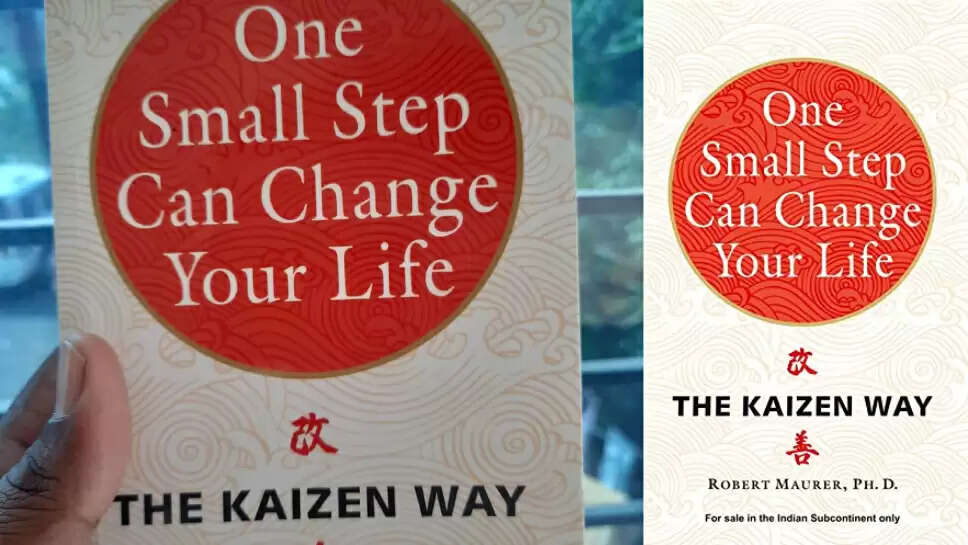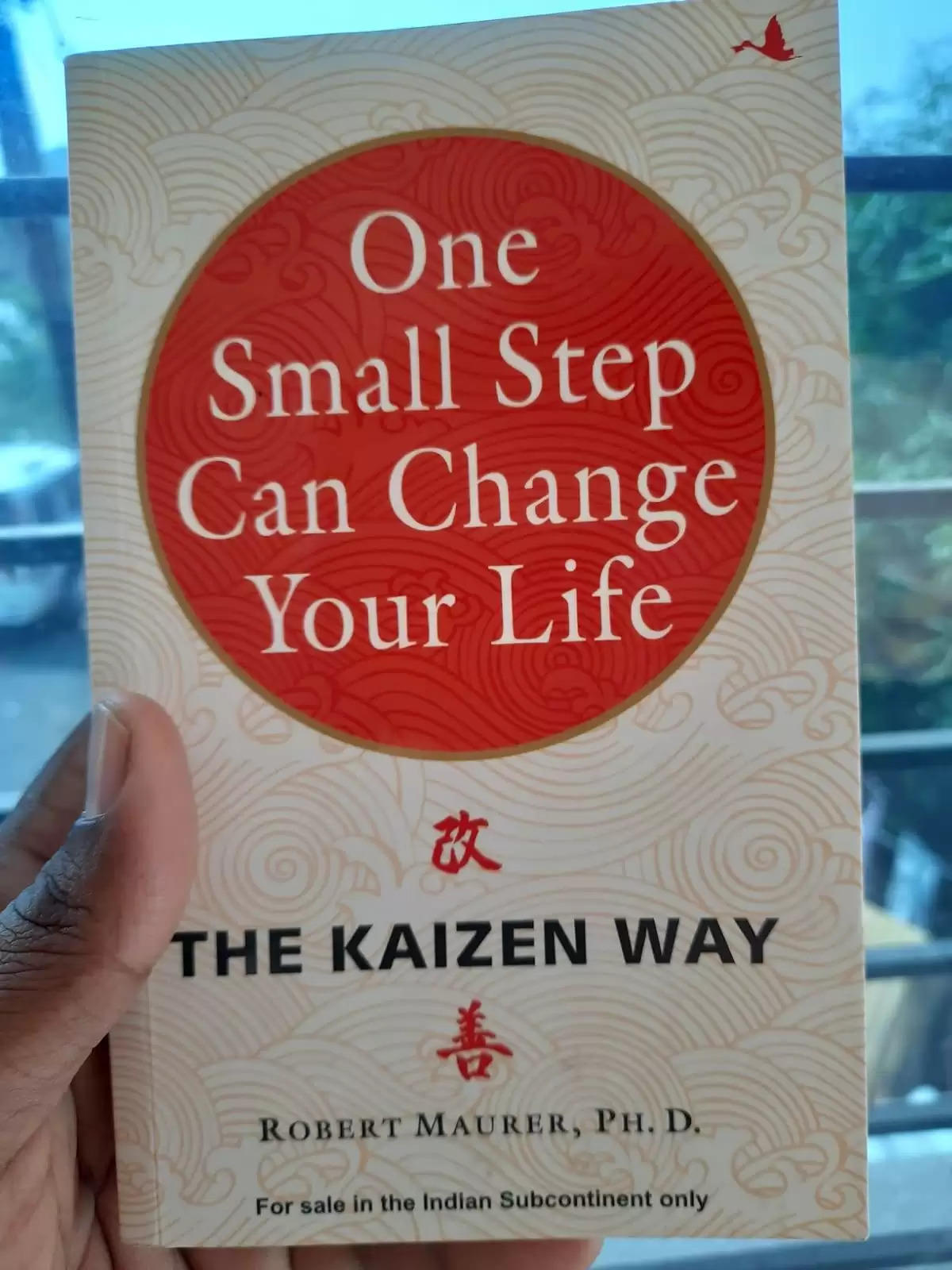One Small Step Can Change Your Life: The Kaizen Way – Key Lessons and Insights

The book One Small Step Can Change Your Life: The Kaizen Way by Robert Maurer uses the idea of Kaizen to show how to improve yourself and your career. This way of doing things comes from Japanese society and is based on the idea that small changes over time can lead to big, long-lasting improvements. Here is a more in-depth look at the book's eight most important lessons:
1. Start Small to Overcome Fear: Maurer highlights that fear and anxiety often stem from the daunting nature of large tasks. When we face a big challenge, our brains can react with a fight-or-flight response, causing paralysis or avoidance. By starting with small, manageable steps, we can circumvent this fear. For instance, if you’re intimidated by the prospect of public speaking, begin by practicing in front of a mirror or with a trusted friend. These tiny, non-threatening steps help build confidence and reduce anxiety, making the larger goal seem more achievable.
2. Ask Small Questions: Small questions are a powerful tool for stimulating creativity and problem-solving. Instead of confronting a problem with a broad, overwhelming query like, “How can I completely overhaul my career?” try asking, “What minor adjustment can I make today to enhance my job satisfaction?” This method encourages incremental change and helps to focus the mind on actionable steps rather than feeling overwhelmed by the magnitude of the task. Such an approach nurtures a problem-solving mindset and opens up new avenues for improvement.
3. Think Small Thoughts: Thinking small means picturing and focussing on small, doable tasks instead of big, scary goals according to the idea. This method lightens the load on the mind and makes the process of change seem less scary. Focussing on small, positive actions and picturing them often can help you change the way you think and act over time. In order to improve your diet, for example, don't try to change everything at once. Instead, start by adding one healthy meal a day. This makes the change more likely to last because it lowers pushback.
4. Take Small Actions: Taking tiny, consistent actions is a cornerstone of the Kaizen philosophy. Maurer advocates for starting with actions so small they seem almost inconsequential. The key is consistency; small actions accumulate over time and lead to significant change. For example, if you wish to develop a reading habit, start with just five minutes a day. This minimal commitment is easier to adhere to and helps establish a routine. Over time, as the habit becomes ingrained, you can gradually increase the duration or depth of your reading.
5. Solve Small Problems: It's important to take care of small problems right away so they don't get worse and more complicated. You can keep making steady progress towards your bigger goals by dealing with small problems as they come up. For example, if you run into a small problem with a project at work, fix it right away instead of letting it get worse. This proactive method keeps you moving forward and keeps you from getting too busy with unfinished business.
6. Reward Small Successes: Recognizing and celebrating small victories is essential for maintaining motivation and reinforcing positive behavior. Small rewards create a sense of accomplishment and encourage you to continue making progress. For example, if you’ve successfully stuck to your new exercise routine for a week, treat yourself to a movie night or a favorite treat. This positive reinforcement not only builds confidence but also creates a feedback loop that keeps you engaged and motivated.
7. Embrace the Power of Incremental Improvement: The Kaizen philosophy emphasizes that gradual, incremental improvements can lead to substantial long-term benefits. Rather than aiming for immediate perfection, focus on making consistent, small improvements. This approach fosters a growth mindset and encourages continuous development. For instance, if you're learning a new skill, such as a language, dedicate a few minutes each day to practice. Over time, these small efforts lead to noticeable progress and proficiency.
8. Be Patient and Persistent: Maurer stresses how important it is to be patient and persistent in the Kaizen method. Small steps may not seem important at first, but over time, they can have a huge impact. Even if it seems like growth is taking a long time, have faith in the process and keep going. As an example, if you're working on a long-term goal or project, know that you might not see big changes for a while. By being patient and persistent, you will become stronger and finally get what you want.
In his book, Maurer lays forth a solid plan for applying the principles of Kaizen to one's career and personal life. You may make significant changes in your life without experiencing feelings of being overwhelmed by applying these teachings. This will pave the road for lasting success and continued progress.

Book: https://amzn.in/d/gtnfu3E
--
-- Class Dismissed --
You Might Also Like: Effective Communication with Children: Insights from "How to Talk So Kids Will Listen & Listen So Kids Will Talk"
